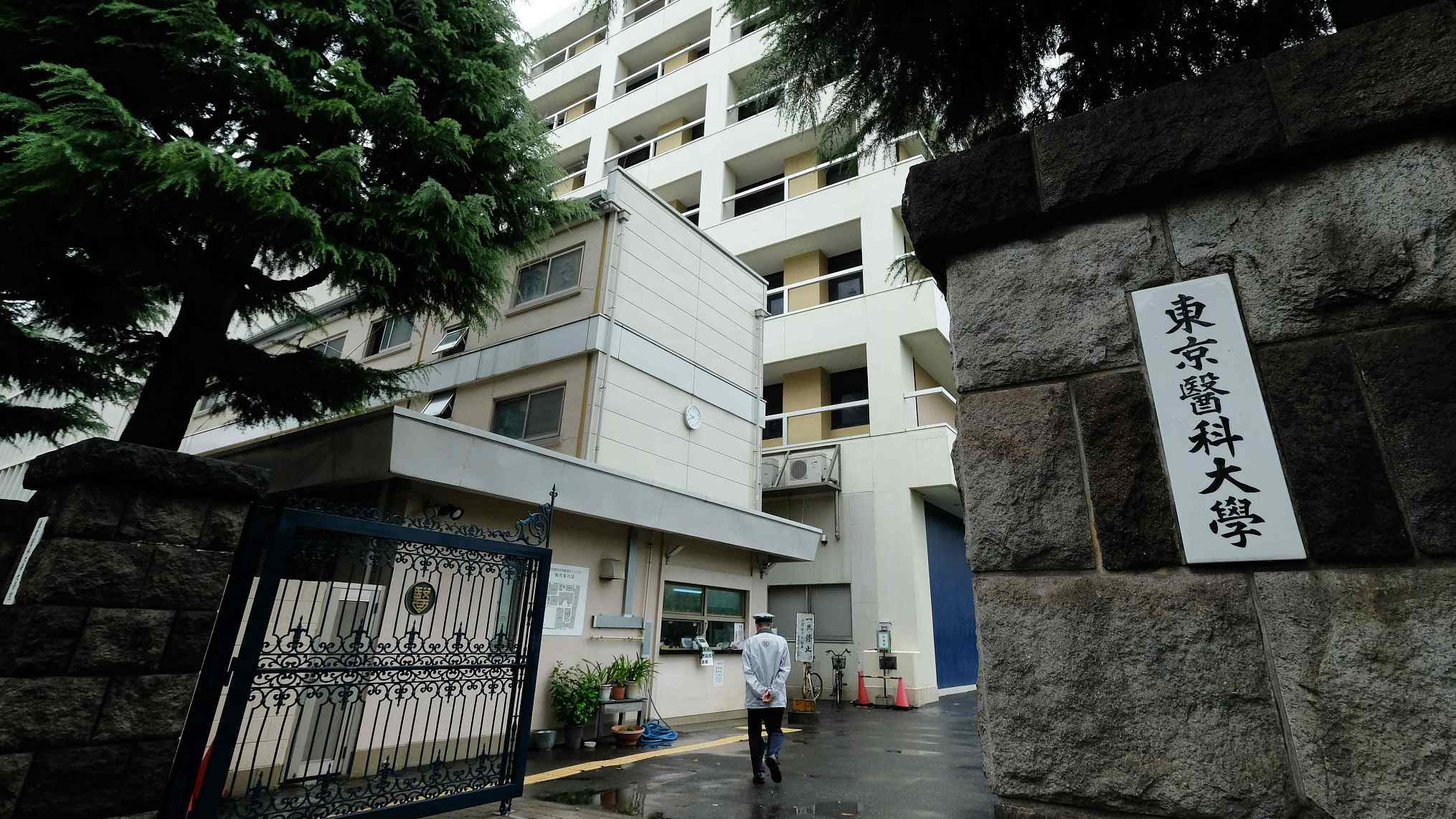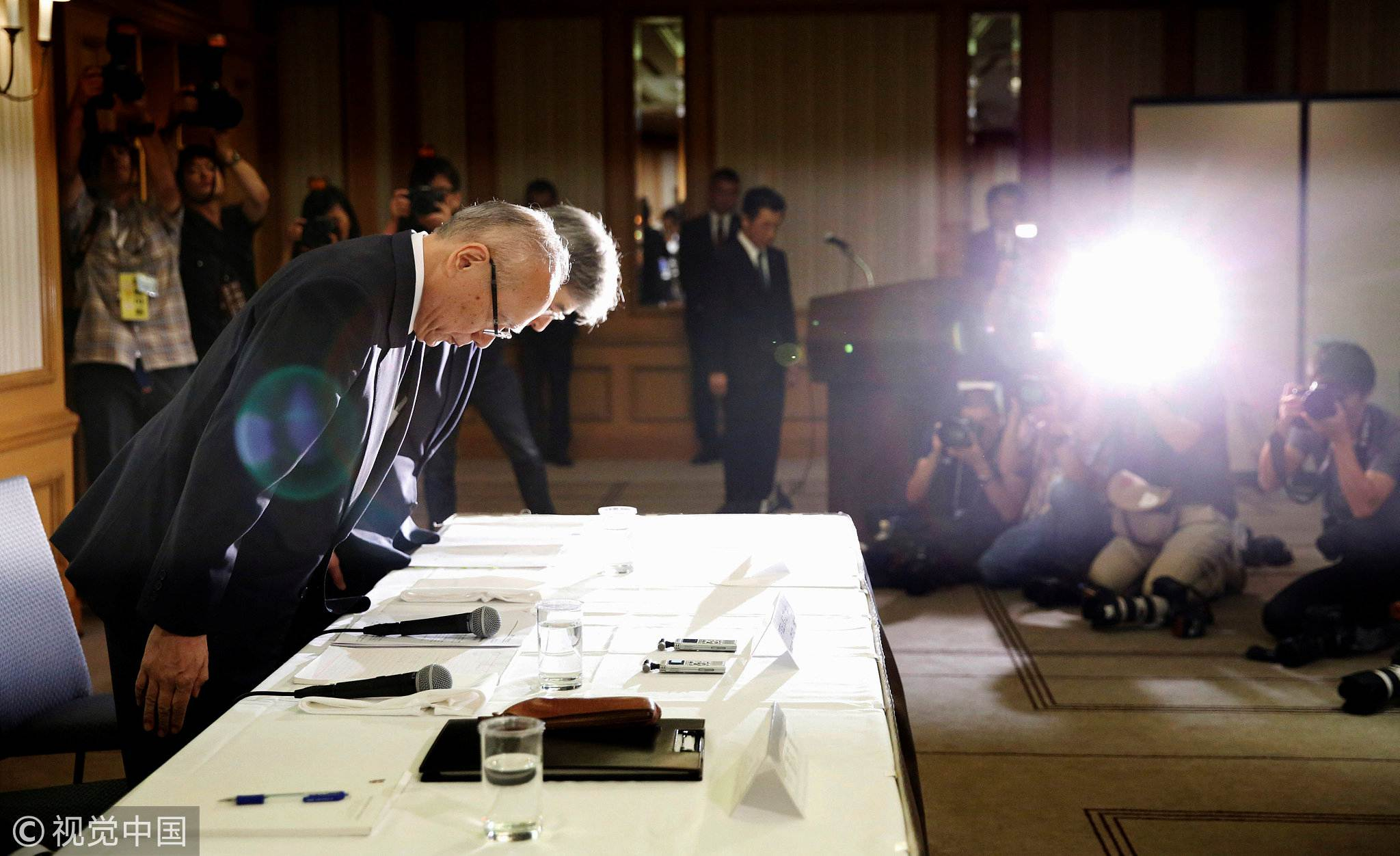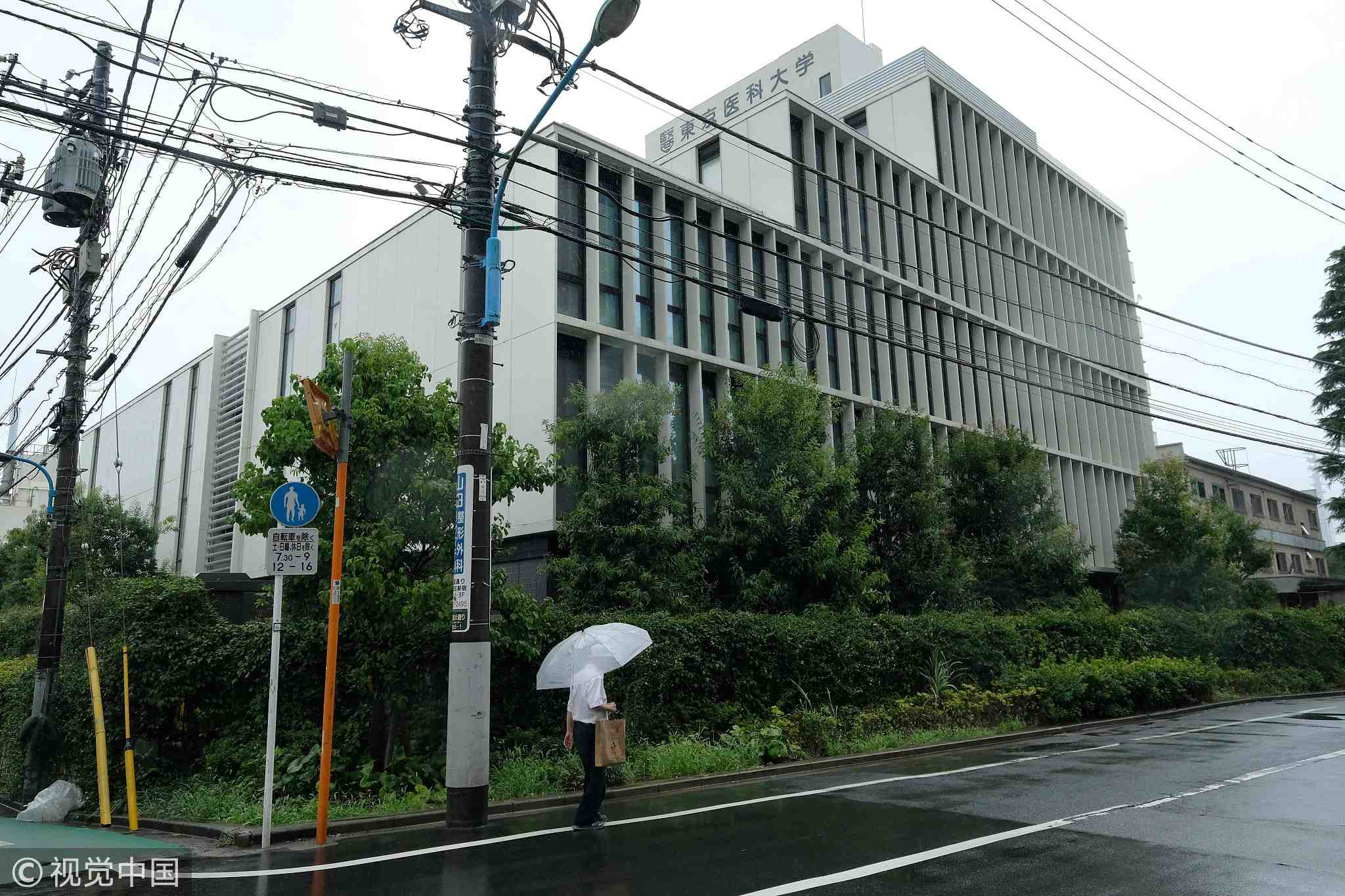
Education
14:40, 08-Nov-2018
Tokyo medical school to admit unfairly rejected students after discrimination scandal
Updated
14:19, 11-Nov-2018
CGTN

Tokyo Medical University, which has been involved in a discrimination scandal for systematically altering entrance exam results against female students, announced on Wednesday that they would accept the unfairly rejected students.
A total of 101 students who took the exam in the past two years and were unfairly rejected would be contacted, according to Yukiko Hayashi, who became the university's first female president after the scandal.
An independent committee's report found that among the 101 students, 32 were last year's applicants while 69 were from this year. Among them, at least 55 were women.

Tetsuo Yukioka (L), Managing Director of Tokyo Medical University and Keisuke Miyazawa, Vice-President of Tokyo Medical University, bow as they attend a news conference in Tokyo, Japan. /VCG Photo
Tetsuo Yukioka (L), Managing Director of Tokyo Medical University and Keisuke Miyazawa, Vice-President of Tokyo Medical University, bow as they attend a news conference in Tokyo, Japan. /VCG Photo
The university admitted in August this year that it had changed the scores of the female applicants to keep the acceptance rate low, due to a belief that women tend to quit their jobs and return to families. Male students who had already failed three times would also be rejected with the same practice.
“We deeply apologize to everyone who was affected,” said Yukiko Hayashi at a conference. “We should never discriminate.” She added that many female doctors have done a wonderful job as well.
The 101 applicants would be contacted to see whether they still want to be enrolled for the 2019 semester which starts in April. However, only 63 places would be offered.
Meanwhile, the university will have to reduce the number of students they planned to accept in 2019.

File of the Tokyo Medical University building in Tokyo, Japan. /VCG Photo
File of the Tokyo Medical University building in Tokyo, Japan. /VCG Photo
At least 24 women have demanded compensation from Tokyo Medical University, citing “mental anguish.” They also requested a refund of exam and travel fees. Most of them either enrolled in other medical schools or took jobs in other fields.
The scandal broke out after its discriminatory practice was discovered amid a bribery investigation involving Futoshi Sano, a high-ranking education ministry official and Masahiko Usui, former chairman of the university, reported Kyodo News.
It has also triggered a wide investigation into other medical schools in the country. So far, 81 schools have been probed.

SITEMAP
Copyright © 2018 CGTN. Beijing ICP prepared NO.16065310-3
Copyright © 2018 CGTN. Beijing ICP prepared NO.16065310-3